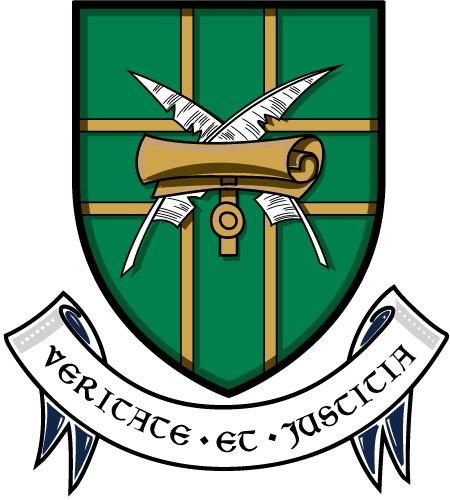Notary Public and Commissioner for Oaths Services
Appointments for Notary Public?
Notary work and solicitor/commissioner for oaths certification of copy documents and signing of documents are carried out by prior appointment in our Blanchardstown office only and are arranged by email only.
Due to a high level of demand, if you wish to make an appointment, please do email [email protected] or use our contact form >>>
Please do not telephone the office for appointments for this service. To best serve you we cannot make appointments for Notary or solicitor/commissioner for oaths certification work by phone.
What is a Notary Public?
A Notary Public (also referred to simply as a “ Notary”) is a legal professional that serves the public, usually in foreign or international transactions, and as such their work is recognised all over the world. The office of Notary Public has a long and noble history and is a separate legal profession from that of a solicitor or a barrister. All Notaries Public are members of the Faculty of Notaries Public in Ireland.
Most Notaries are also a solicitor or a barrister. There are some Notary Publics who are neither, but this is rare. A distinguishing feature between a Notary Public and a solicitor is that a solicitor’s primary duty is to his client whereas the Notary’s primary duty is to the transaction and confirming the authenticity of the documentation. A Notary Public’s work is recognised all over the world and because of this, they are expected to have complete integrity and be independent of the person presenting the documentation.
Anthony Carmody, while also being a practising solicitor, was appointed by the Chief Justice of Ireland in 2016 to act as a Notary Public for Life in the counties of Dublin, Kildare, Wicklow, and Meath.
What does a Notary Public do?
As a Notary Public, Anthony Carmody can Notarise documents and confer authenticity on legal instruments, documents, and contracts. The range of documents involves wills, company documents, property transactions, banking, and many others.
As a Notary Public, Anthony Carmody can assist with the following:
- Take and administer Oaths on legal documents.
- Witness and attest signatures on official documents
- Authenticate and certify original Documents for use in Ireland or abroad. These types of documents can be very wide ranging and include Birth Certificate, Marriage Certificates, Powers of Attorney, passports.
- Authenticate and certify copy documents for use in Ireland or abroad. Again these can be very wide ranging.
- Draft Affidavits where the Affidavit but only where the Affidavit is not going to be used in a Court in Ireland
- Draft Powers of Attorney and other legal documents as may be required
- Draft and take Affirmations and Declarations
- Receive and make protests regarding promissory notes and Bills of Exchange (under Mercantile Law) and issue notarial certificates in respect of documentation and in relation to persons
- Issue Ships Protests and assist in other matter of Admiralty law
- Notarising documents for the purchase or sale of foreign property
- Certification of Company documentation for use abroad
- Preparing notarial certificates
- Assisting with immigration and emigration applications by authenticating and certifying personal documents and information
- Assisting with foreign adoption packs
A Notary Public will usually have limited or no knowledge of foreign legal systems and therefore will usually not draft technical documentation which is intended for use abroad and instead will ask that the documentation be drafted in the country where it is intended to used.
How do I know if I need a Notary?
If the document is for use abroad then you will almost certainly need a Notary Public. The person, state agency or company with whom you are dealing will usually tell you that a Notary Public is required. If the document is for use in Ireland solely, then a Notary Public is rarely required,
How much does it cost to use a Notary?
Before you meet with Anthony Carmody, Notary Public, you will be asked exactly what is required and then an estimate of fees will be given to you. There is no set fee because every transaction is different. As quotes are given on every transaction in advance of meeting, there is compete transparency on fees and no hidden extras! Fees quotes are calculated once we know the nature of the work, the nature and number of documents involved and the time that will be required to complete the work.
If we are asked to prepare copies of documents, we can do this but we have to factor in the administration time as well as the costs of the copies themselves:
A4: B&W 30c per page and full colour copies are charged at €1 per page.
A3 copies are charged at twice the A4 rate
What do I need to bring with me to get a document Notarised?
We will tell you all this when you contact us but we will always need the document itself and any cover note you received with instructions as to what procedure is to be followed when the document is being Notarised. If copy documents are being authenticated, then the original document must always be produced.
Depending on the transaction, other documents may be needed and we will discuss this with you.
Do I need to produce identification?
Yes, you do. The type of identification needed is any of the following:
- Passport
- Driving Licence
- National Identity Card
- Other State issued ID so long as it has a photo and signature
However, for some documentation, a valid passport is needed especially if an Apostille is required and therefore we ask that in all instances a valid passport is produced where possible.
In addition to this, we will require proof of address showing your name and address and dated within the last 3 months. Acceptable documents are utility bills (not mobile phone bills), bank or credit card statements or correspondence from a State agency.
What is an Apostille and how do I know if I need one?
An Apostille is a certificate issued by the Department of Foreign Affairs (DFA) verifying that a signature and/or seal of a public officer is genuine e.g. a Notary Public, on a public document and the capacity in which he or she has acted.
The Apostille certificate is attached to the public document required to be apostilled. It is obtained by presenting the document at the DFA. The office is located in Dublin and their contact details are:
Knockmaun House, 42-47, Lower Mount Street, Dublin 2
Tel: + 353 1 4082174
website address: www.dfa.ie/travel/our-services/authenticating-documents
The DFA charge a fee paying normally €40.00 per document. This is subject to change and you should enquire with the DFA in this regard in advance.
Ireland ratified the Convention in 1999. Other countries in which the Apostille procedure applies may be checked on the Hague Convention website, where a list of countries adhering to the Apostille system abolishing the need for legalisation, and also those countries not Hague Convention Countries Adhering or likely also on the Department of Foreign Affairs webpage
In instances where you need an Apostille but do not hold an Irish Passport, the DFA may require that you first have your passport authenticated in your Embassy or Consulate. You can find out more about this from the DFA and your Embassy or Consulate.
You should always enquire with the person or body to whom you are sending the documents whether they require an Apostille.
What is a Commissioner for Oaths, what do they do and how much does it cost?
A Commissioner for Oaths is someone who has been authorised to verify affidavits and authenticate documentation. They are appointed by the Chief Justice of Ireland and can practice in any part of the country. All solicitors are automatically enrolled as Commissioners for Oaths on qualify to practice as solicitors. The majority of Commissioners for Oaths are also practising solicitors.
You may need the services of a Commissioner for Oaths if:
- you have bene asked to give evidence by way of affidavit for example in court proceedings in Ireland
- you are making an affirmation, declaration, acknowledgement, examination or attestation for the purposes of court proceedings or
- for the purposes of registration of documents
- Authentication of documents (original or true copies of an original)
Other than Court documents, other examples include Passport application forms, lost motor vehicle logbooks etc.
Fees:
Fees are €10 per certified document. For affidavits, again the fee is €10 per person signing the documents and a fee of €2 per exhibit.
What is the difference between a Notary Public and a Commissioner for Oaths?
At its simplest, a Notary Pubic is used where the document is produced abroad and a Commissioner for Oaths is used for documents to be used in Ireland. Both however are bound by the overriding principal that their duty is to the transaction and not to the person appearing before them. This is why solicitors can swear documents for their own clients.
Links out:
https://www.dfa.ie/travel/our-services/authenticating-documents/
https://www.notaryinstitute.ie/the-notary-in-ireland/
http://www.notarypublic.ie/what-is-a-notary/
https://www.citizensinformation.ie/en/justice/civil_law/notaries_public.html
For further information please feel free to email us [email protected] or use the quick enquiry form.
Your Expert Team
At Carmody Moran Solicitors our experienced family law lawyers are on hand to advise and skilled in handling all nature of divorce.
The two partners of Carmody Moran solicitors have a combined total of in excess of twenty five years professional legal experience. Together with their associates they aim to make the Court process as straight forward and navigable as possible while being on hand to alleviate their clients concerns and worries about going through the Court process.

He has significant experience in personal injury cases and general litigation having handled literally thousands of cases on behalf of clients based in Ireland and abroad.

Niamh manages the family law, conveyancing and probate divisions of the practice. Niamh’s practice of law is extremely varied and she is regularly sought out for her expertise by clients and colleagues alike.
